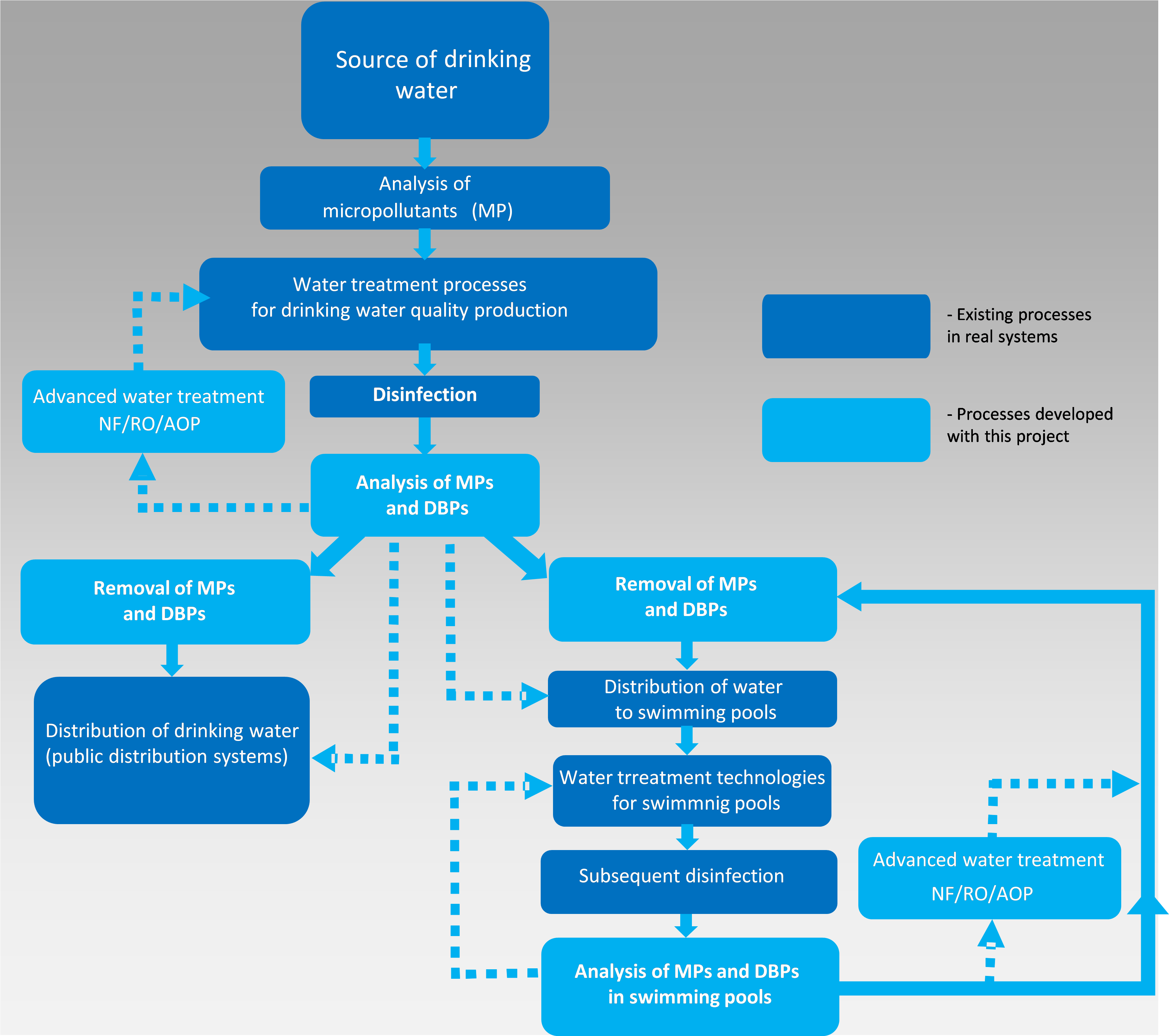The InWatTechno project innovatively combines advanced membrane and oxidation processes for removal and degradation of disinfection by products (DBPs) and their precursors (xenobiotics) from drinking and pool waters. The target compounds that will be investigated in this project are trihalomethanes (THM), haloacetic acids (HAA) and nitrosamines (NA), most of which are covered by European and Croatian regulations. All of them pose a potential risk to human health and the water system.
Coupling advanced membrane, especially nanofiltration/reverse osmosis (NF/RO) processes, with advanced oxidation processes (AOP) such as O3/UV, H2O2/UV, O3/H2O2, UV/TiO2, etc., represents recent research trends in water treatment and its intensification with the aim of maximum removal of organic micropollutants of synthetic origin (xenobiotics), and DBPs that are produced by classic water disinfection procedures with chlorine and chlorine-like disinfectants.
InWatTechno project deals with the challenge of ensuring high-quality drinking water and introducing new technological procedures for water treatment of specific categories.
The new knowledge will be practically applied in the treatment (conditioning) of water in order to improve the quality of potable and pool water, i.e. the protection of human health. The impact of the results on the environment, i.e. the protection of water resources, will be visible through (a) a reduction in the amount of DBPs in drinking and swimming pool waters that end up in the environment as wastewater after use and (b) a reduction in the amount of DBPs in the retentate at the exit from of membrane unit, which is also discharged as waste water. In this way, compliance with the legal regulations will be ensured.
Figure. Summary of the streams and types of water that will be investigated in the project
 Pristupačnost
Pristupačnost